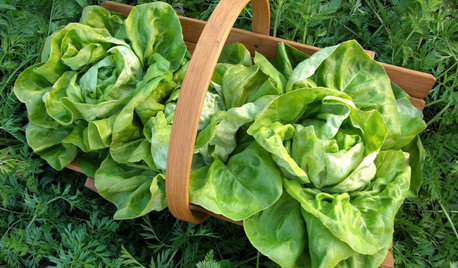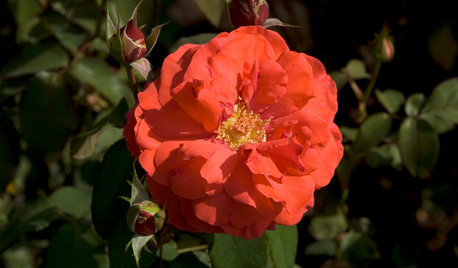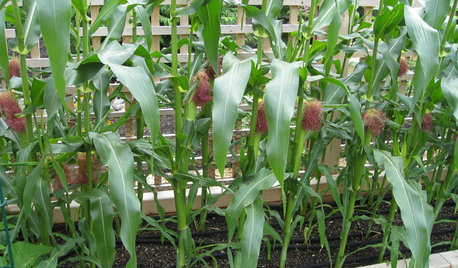Manure question
lilion
15 years ago
Related Stories

DOORS5 Questions to Ask Before Installing a Barn Door
Find out whether that barn door you love is the right solution for your space
Full Story
GARDENING GUIDESLush, Foodie Abundance in a Small Urban Garden
This modest backyard garden provides its owner with fruit and vegetables all year round, thanks to an innovative low-maintenance approach
Full Story
GARDENING GUIDESA Mom, a Garden and a Gift for the Neighbors
Gardening can be therapeutic in unexpected ways. See how one gardener found peace and purpose in a patch of Florida soil
Full Story
GARDENING GUIDES10 Easy Edibles for First-Time Gardeners
Focus on these beginner-friendly vegetables, herbs, beans and salad greens to start a home farm with little fuss
Full Story
EDIBLE GARDENSSummer Crops: How to Grow Tomatoes
Plant tomato seedlings in spring for one of the best tastes of summer, fresh from your backyard
Full Story
GARDENING GUIDES6 Captivating Roses for an Alluringly Fragrant Garden
Perfume your garden with aromas from richly spicy to lightly sweet, without sacrificing an inch of color
Full Story
MOST POPULARThe Polite House: On ‘No Shoes’ Rules and Breaking Up With Contractors
Emily Post’s great-great-granddaughter gives us advice on no-shoes policies and how to graciously decline a contractor’s bid
Full Story
STORAGEHat Storage: Don’t Get Bent Out of Shape
From boxes to hooks, we look at ways to keep your lid on straight in time for summer hat season
Full Story
SUMMER FRUITS AND VEGETABLESHow to Grow Your Own Fresh, Sweet Corn
Here's how to plant and care for your own mini cornfield
Full Story
GARDENING GUIDESGet on a Composting Kick (Hello, Free Fertilizer!)
Quit shelling out for pricey substitutes that aren’t even as good. Here’s how to give your soil the best while lightening your trash load
Full StoryMore Discussions







lilionOriginal Author
lilionOriginal Author
Related Professionals
Rancho Cordova Landscape Architects & Landscape Designers · Brooklyn Center Landscape Architects & Landscape Designers · McKinney Landscape Contractors · Wilmington Landscape Contractors · Peabody Landscape Contractors · Azalea Park Landscape Contractors · Cary Landscape Contractors · Galveston Landscape Contractors · Middleton Landscape Contractors · Coatesville Decks, Patios & Outdoor Enclosures · Dayton Decks, Patios & Outdoor Enclosures · Green Bay Decks, Patios & Outdoor Enclosures · Saint Louis Park Decks, Patios & Outdoor Enclosures · Verde Village Decks, Patios & Outdoor Enclosures · Truckee Decks, Patios & Outdoor Enclosuresdchall_san_antonio
lilionOriginal Author
Kimmsr
lilionOriginal Author
leira
gardengal48 (PNW Z8/9)
lilionOriginal Author
Lloyd
Kimmsr
Lloyd
gardengal48 (PNW Z8/9)
Kimmsr
gardengal48 (PNW Z8/9)
Lloyd
gardengal48 (PNW Z8/9)
jonas302